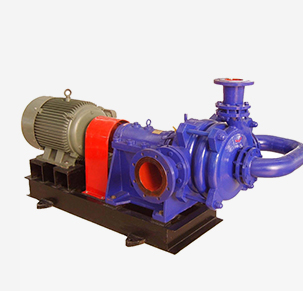Polish
- Afrikaans
- Albanian
- Amharic
- Arabic
- Armenian
- Azerbaijani
- Basque
- Belarusian
- Bengali
- Bosnian
- Bulgarian
- Catalan
- Cebuano
- Corsican
- Croatian
- Czech
- Danish
- Dutch
- English
- Esperanto
- Estonian
- Finnish
- French
- Frisian
- Galician
- Georgian
- German
- Greek
- Gujarati
- Haitian Creole
- hausa
- hawaiian
- Hebrew
- Hindi
- Miao
- Hungarian
- Icelandic
- igbo
- Indonesian
- irish
- Italian
- Japanese
- Javanese
- Kannada
- kazakh
- Khmer
- Rwandese
- Korean
- Kurdish
- Kyrgyz
- Lao
- Latin
- Latvian
- Lithuanian
- Luxembourgish
- Macedonian
- Malgashi
- Malay
- Malayalam
- Maltese
- Maori
- Marathi
- Mongolian
- Myanmar
- Nepali
- Norwegian
- Norwegian
- Occitan
- Pashto
- Persian
- Polish
- Portuguese
- Punjabi
- Romanian
- Russian
- Samoan
- Scottish Gaelic
- Serbian
- Sesotho
- Shona
- Sindhi
- Sinhala
- Slovak
- Slovenian
- Somali
- Spanish
- Sundanese
- Swahili
- Swedish
- Tagalog
- Tajik
- Tamil
- Tatar
- Telugu
- Thai
- Turkish
- Turkmen
- Ukrainian
- Urdu
- Uighur
- Uzbek
- Vietnamese
- Welsh
- Bantu
- Yiddish
- Yoruba
- Zulu
Telephone: +86 13120555503
Email: frank@cypump.com
lis . 09, 2024 06:51 Back to list
Efficient Solutions for Sewage Water Pumping Systems and Their Applications
The Importance of Sewage Water Pumps in Modern Wastewater Management
In the realm of wastewater management, sewage water pumps play a crucial role in maintaining public health and environmental quality. These specialized pumps are designed to transport sewage and wastewater from various sources, ensuring that it is efficiently moved to treatment facilities where it can be processed and purified. As urbanization and population growth continue to strain existing infrastructure, the significance of sewage water pumps becomes increasingly apparent.
Understanding Sewage Water Pumps
Sewage water pumps are mechanical devices specifically engineered to handle the unique challenges posed by wastewater. Unlike regular water pumps, these pumps are capable of handling solids, debris, and other contaminants that are commonly found in sewage. The fundamental classification of these pumps includes submersible pumps, which are installed underwater, and centrifugal pumps, which can be placed above the liquid level. Each type offers distinct advantages, catering to different operational needs.
Submersible sewage pumps are particularly beneficial in residential and commercial settings where space is limited. These pumps can function underwater, minimizing the need for extensive infrastructure and reducing the risk of odors and contamination. On the other hand, centrifugal pumps are ideal for larger systems, such as municipal wastewater treatment plants, where high flow rates and substantial head pressures are required.
The Role of Sewage Water Pumps in Wastewater Treatment
The primary role of sewage water pumps is to convey wastewater to treatment facilities. There are several stages in the wastewater treatment process where pumps are essential, including
1. Collection and Transport Sewage water pumps collect wastewater from homes, businesses, and industrial facilities. This sewage is then transported through a network of pipes to a treatment plant. Properly functioning pumps are vital to prevent overflows and backups in the sewage system.
pump for sewage water

2. Pre-Treatment Before wastewater undergoes treatment, it often requires pre-treatment to remove large solids that could damage equipment or disrupt the treatment process. Here, grinders and bar screens work in conjunction with sewage pumps to eliminate these obstacles.
3. Aeration and Treatment In treatment facilities, sewage pumps move wastewater through various stages of treatment, including aeration tanks, where bacteria break down organic matter. These pumps ensure consistent flow rates, which are essential for optimal treatment efficiency.
4. Disposal and Reuse After treatment, the purified effluent may either be discharged into the environment or reused for irrigation and industrial processes. Pumps are crucial in this final stage, facilitating the safe and efficient transfer of treated water.
Challenges and Innovations in Pump Technology
As the demand for efficient wastewater management increases, so do the challenges associated with sewage water pumps. Aging infrastructure, environmental regulations, and the need for sustainable practices can all impact pump performance. Manufacturers are continually innovating, focusing on energy efficiency and smart technologies, such as IoT (Internet of Things) integration. These advancements allow operators to monitor pump performance in real time, optimizing operations and reducing maintenance costs.
Furthermore, the implementation of advanced materials in the construction of sewage water pumps enhances their resilience against corrosion and abrasiveness encountered in wastewater. Improved designs also aim to minimize energy consumption, contributing to more sustainable wastewater management practices.
Conclusion
Sewage water pumps are an indispensable component of modern wastewater management systems. As cities grow and the demand for efficient waste handling escalates, the role of these pumps will only become more critical. By ensuring the safe and effective transport of sewage, these pumps protect public health and the environment, making them vital to our increasingly urbanized world. Continued advancements in pump technology will further enhance their capabilities, ensuring that we are prepared to meet the challenges of the future. As we prioritize sustainable management practices, the significance of reliable sewage water pumps cannot be overstated.
-
Reliable Non-Clog Sewage Pumps with GPT-4-Turbo Tech
NewsAug.04,2025
-
High-Performance Air Pumps for Sand & Gravel | Efficient Transport
NewsAug.03,2025
-
ISG Series Vertical Pipeline Pump - Chi Yuan Pumps Co., LTD.|Energy Efficiency, Corrosion Resistance
NewsAug.03,2025
-
ISG Series Pipeline Pump - Chi Yuan Pumps | Energy Efficiency&Compact Design
NewsAug.03,2025
-
ISG Series Vertical Pipeline Pump - Chi Yuan Pumps Co., LTD.|High Efficiency, Low Noise, Durable
NewsAug.02,2025
-
ISG Series Vertical Pipeline Pump - Chi Yuan Pumps | High Efficiency, Low Noise
NewsAug.02,2025










